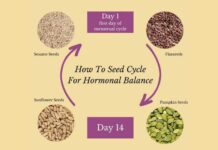Not all “healthy habits” are equal—some may be doing more harm than good. While wellness trends have a reputation for delivering radiant skin, harmonized hormones, and longevity, many of these routines, when pushed to extremes or interpreted wrongly, can quietly speed up aging.
From skin damage and hormonal shifts to mental fatigue and metabolic decline, this article explores eight habits that seem healthy on the surface but may be nudging your body toward premature aging. If you’ve been diligent about your health but feel more tired, stressed, or worn down than ever, this list might reveal why.
Here are the 8 common seemingly healthy habits that could be aging you faster:
1. Over-Exercising Without Recovery

Exercise is essential to longevity, but more isn’t always best. Excessive high-intensity exercise performed too often can increase cortisol, boost systemic inflammation, and disrupt muscle recovery.
Why does it speed up aging?
- Chronic overtraining results in muscle loss, fatigue, insomnia, and ultimately hormone imbalance.
- Increased cortisol weakens the immune system and can disrupt skin repair, causing you to look and feel older.
Better Approach:
Alternate high-intensity training with restorative exercises such as walking, yoga, and mobility training. Plan complete rest days and sleep enough to let your body regenerate.
Read More: Healthy Habits for Busy Professionals: Balancing Work and Wellness
2. Skipping Meals or Overdoing Intermittent Fasting

Intermittent fasting can have a positive metabolic effect, but prolonged fasts, particularly in women, can throw off hormones, impact mood, and cause muscle loss.
Why does it speed up aging?
- Skipping meals raises stress hormone production, such as cortisol, which can cause dull skin, belly fat, and slowed metabolism.
- Not having regular nutrients puts the body under stress and can result in binge eating later on.
Better Approach:
Stick to shorter fasting periods (12–14 hours) and emphasize nutrient-dense, balanced meals within your eating window. If fasting leaves you fatigued, anxious, or irregular, it might be time to reconsider the practice.
Read More: The 5:2 Diet Explained: Can Fasting Two Days a Week Help You Lose Weight?
3. Overusing Skincare Actives (Retinol, Acids, Vitamin C)

Active ingredients such as retinol, AHAs, and vitamin C are known for their anti-aging qualities, but applying more than one at once or too frequently may have the opposite effect.
How it speeds aging:
- Excessive exfoliating weakens the skin barrier, causing dryness, redness, and greater sensitivity.
- This may replicate symptoms of aging, like fine lines, redness, and loss of flexibility.
Better Approach:
Prioritize skin barrier health through ceramides, niacinamide, and gentle hydration. Swap active ingredients and do not layer multiple harsh products at once on the same evening.
4. Eating a Low-Fat or Low-Protein Diet

Most people cut fat and protein to lose weight or “eat clean.” But these macronutrients are used for repairing tissue, hormone creation, and sustaining muscle mass. Eliminating these from the diet speeds up metabolism and aging.
Why does it promote aging?
- Fat and protein facilitate collagen development and skin maintenance. Without them, the body is unable to hold onto elasticity and muscle tone.
- Shortages may lead to brittle hair, parched skin, and slower cellular repair.
Better Approach:
Add healthy fats (such as avocados, nuts, and fatty fish) and high-quality proteins (such as legumes, eggs, and lean meats) to each meal to provide skin structure and energy metabolism.
5. Sacrificing Sleep to “Be More Productive”

Burning the midnight oil might be a badge of honor, but sleep is when one’s body performs deep repair.
Why does it accelerate aging?
- Sleep deprivation lowers growth hormone release, compromises immune function, and disrupts memory consolidation.
- Sleep loss has been linked to fine lines, dull skin, weight gain, and impaired cognitive function.
Better Approach:
Prioritize 7–9 hours of uninterrupted sleep in a dark, cool room. Reduce screen exposure before bedtime and create a soothing wind-down process to facilitate deep rest.
Read More: How to “Rewire” Your Sleep Schedule in Just One Weekend
6. Consuming Too Much “Healthy” Caffeine

Moderate caffeine promotes alertness and focus. Excessive amounts, however, late in the evening, can overwhelm your nervous system and impede recovery.
Why does it speed up aging?
- Excessive caffeine consumption raises cortisol, impairs sleep, and leads to collagen breakdown.
- Overconsumption will lead to jitteriness, nervousness, and aggravate circles under the eyes.
Better Approach:
Maintain moderation in consumption and refrain from taking it past 2 PM. Drink lots of water and consider replacing your third cup of coffee with adaptogens or herbal teas.
7. Chronic Calorie Tracking or Restrictive Dieting

Monitoring meals can prove beneficial, but keeping track of each calorie or nutrient will ultimately lead to a reverse effect, mentally as well as physically.
How does it speed up aging?
- Prolonged restriction slows metabolism, reduces lean body mass, and can cause deficiencies in vitamins crucial for skin, energy, and immunity (Harvard Health).
- It may also elevate stress and interfere with your body’s natural hunger cues.
Better Approach:
Shift toward intuitive eating—pay attention to hunger, fullness, and energy levels. Choose whole, minimally processed foods, and prioritize nutrient density over numbers.
8. Ignoring Stress Because “You’re Handling It”

Mental health often gets sidelined in favor of productivity. But ignoring stress doesn’t make it disappear—it just embeds itself deeper in your physiology.
How does it accelerate aging?
- Chronic stress raises cortisol, disrupts digestion, impairs sleep, and affects hormone balance.
- Over time, this leads to inflammation, weight gain, and visible signs of aging like dull skin and fatigue.
Better Approach:
Prioritize emotional health as much as physical. Practice stress-reducing techniques like journaling, deep breathing, nature walks, or simply setting better boundaries. What calms your nervous system strengthens your entire body.
Final Thoughts

Wellness is not about keeping up with all the trends—it’s about respecting what your body really requires. Most habits that appear “healthy” on the surface can stealthily exhaust you when taken to the extreme. Skipping meals, over-exercising, counting calories to extremes, or overwhelming your skincare routines can appear to be acts of self-care, but all this can leave you drained, messing with your hormones, and speeding up signs of visible aging.
The truth? Healthy living isn’t a race—it’s a rhythm. And longevity isn’t based on hard-and-fast rules, but on balance, rest, nourishment, and awareness.
Rather than wondering, “Is this healthy?” think, “Is this healthy for me, right now?” That shift in the mindset is where true anti-aging starts—not in restriction, but in respect.
References
- https://eligator.co.in/blogs/the-dark-side-of-superfoods-are-you-being-misled/9-signs-symptoms-of-high-stress-levels
- https://www.health.harvard.edu/staying-healthy/stop-counting-calories
- https://eligator.co.in/blogs/the-dark-side-of-superfoods-are-you-being-misled/9-signs-symptoms-of-high-stress-levels
- https://uk.theinkeylist.com/blogs/news/what-products-should-i-not-layer-together
- https://ispf.co.in/stop-burning-out-start-sleeping-the-ultimate-productivity-hack/
- https://pubmed.ncbi.nlm.nih.gov/32748747/


















